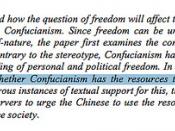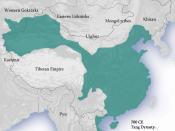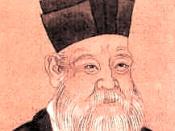The era of the Tang and Song Dynasties is considered the Golden Age of Post-classical China. During these times, trade, society, art, and literature all flourished. A revival of Confucian thought was promoted by the governments of both dynasties. There was a decline in the status of women over this time period as well. These political and social aspects of Chinese life have both changed and remained the constant as China progressed through the Tang and the Song dynasties.
The rebuilding of and expansion of the Chinese bureaucracy was crucial for the restoration of Chinese unity that the early Tang emperors strived to achieve. Central to the restored bureaucracy was a scholar-gentry and a reworked Confucian ideology. As the Tang Empire expanded, the rulers were in desperate need of loyal and well-educated officials to help govern their vast lands. The scholar-gentry bureaucrats were also able to offset the power of the aristocrats.
The executive department of the new Chinese bureaucracy was divided into six ministries which included war, justice and public works. There was an additional Bureau of Censors whose main charge was to keep track of officials at all levels and report their misdeeds or failings.
Tang Emperors educated their officials in the Confucian classics, which were believed to teach moral and organizational principal which were essential to effective administrators. During both the Tang and Song periods, the examination system was greatly expanded and the plan of advancement in the civil service was more widely accepted. There were several different types of examinations administered by the Ministry of Rites to the students of government schools or to those who were recommended by already distinguished scholars. Only those who were able to pass the exams on philosophical and legal classics and even more challenging ones on Chinese literature were allowed...


